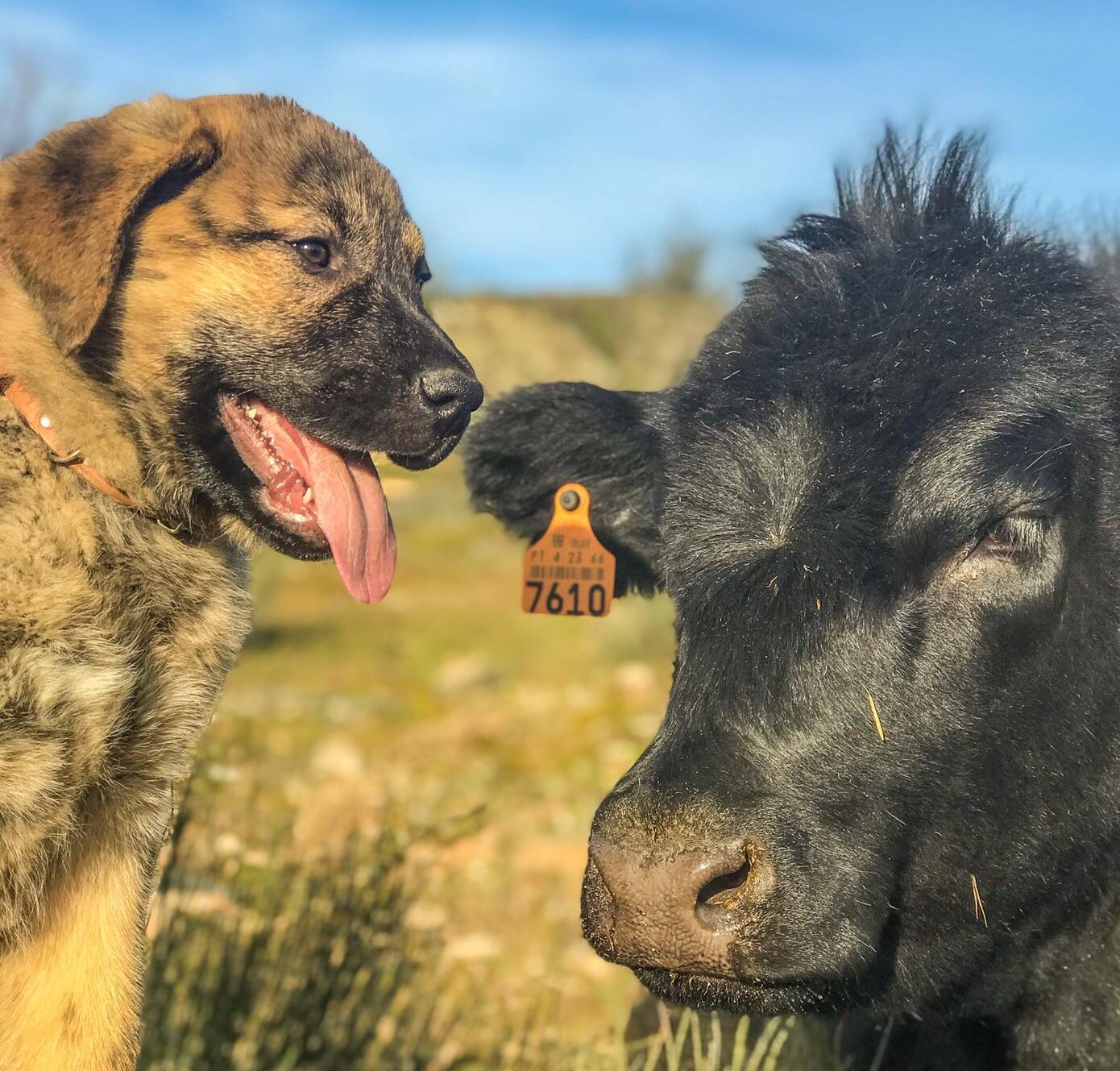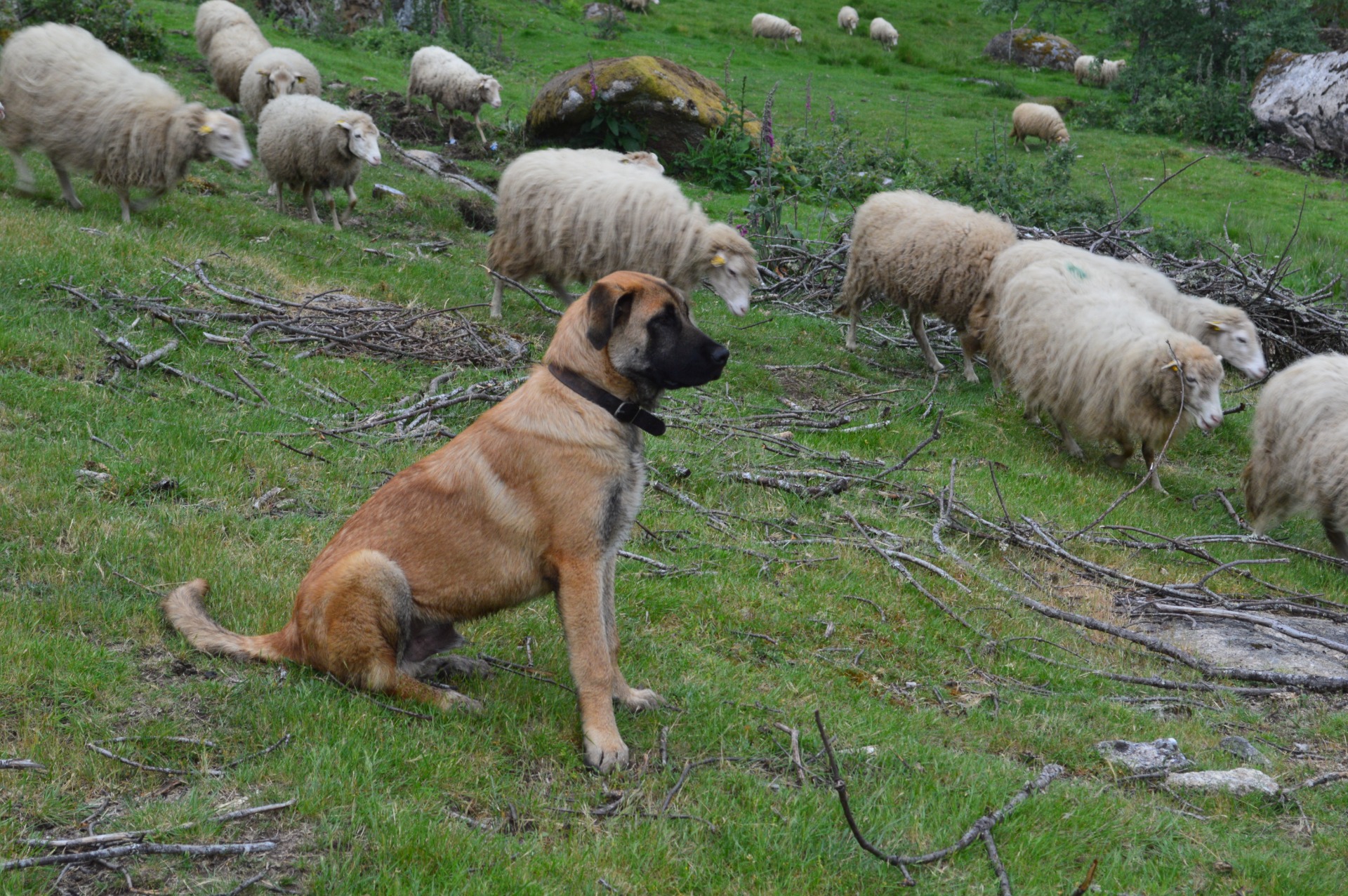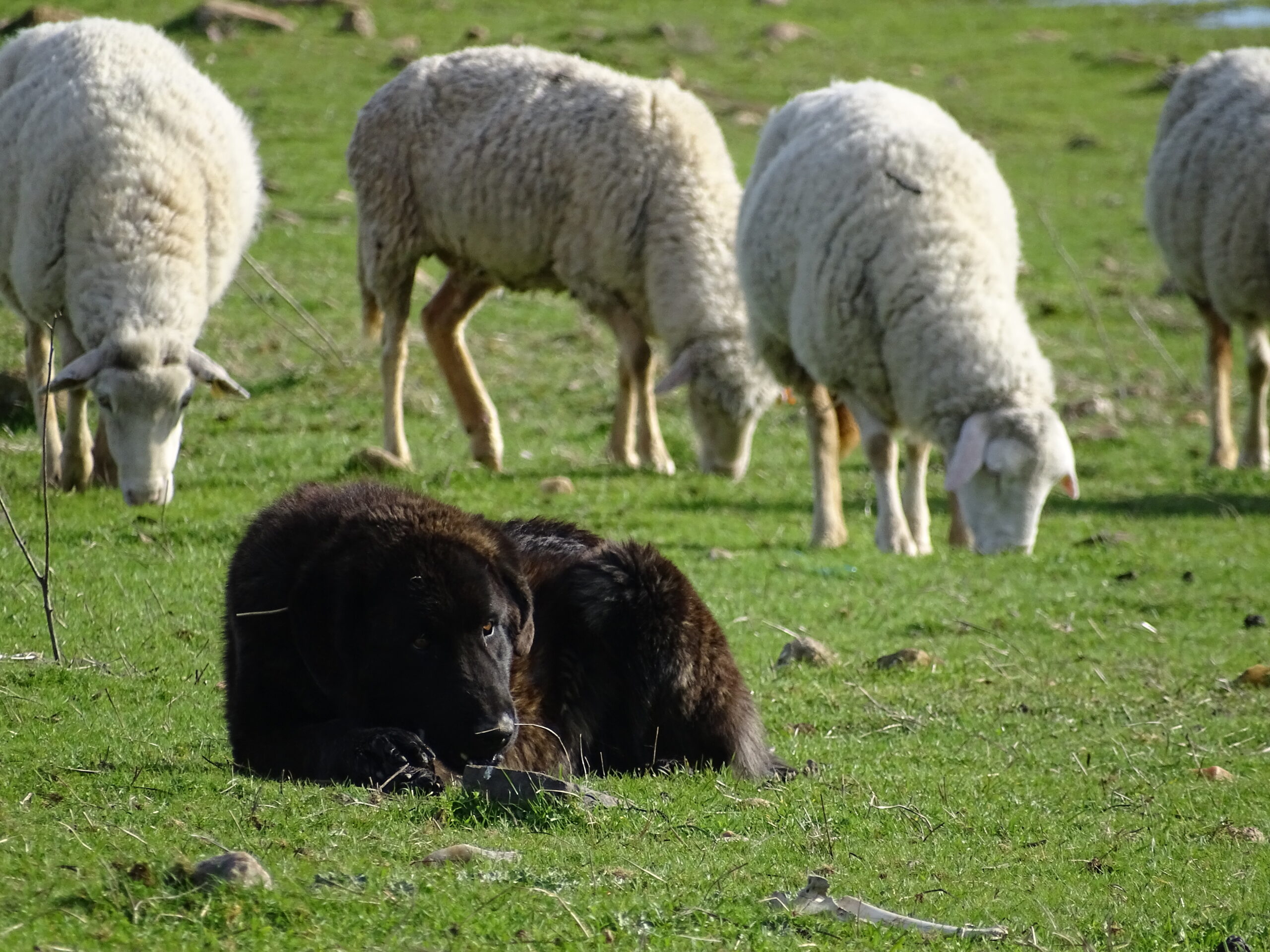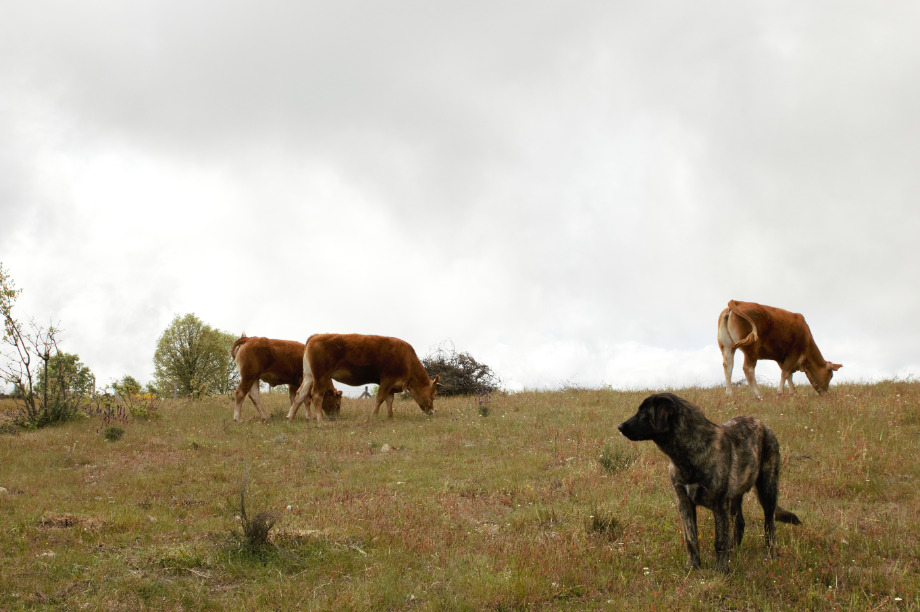The workshop “The legal framework of the livestock guarding dog in Portugal” took place at the end of March 2021 and brought together national entities to help clarify the situation of these dogs in legislation and promote their use as an effective measure to prevent damage caused by Iberian wolves or other predators.

Livestock guarding dogs and the conservation of the Iberian wolf
As one of mankind’s oldest traditions, livestock guarding dogs (LGDs) have always protected domestic animals (sheep, cows and goats) against attacks by wolves and other predators. In Portugal, these dogs are an essential tool to promote a better coexistence between local communities and wild fauna, especially with the Iberian wolf.
The Iberian wolf is in a precarious situation south of the Douro river, with few packs that are isolated and with little connectivity with the rest of the Iberian population. Conflict with livestock farming is one of the main threats to the long-term viability of this subpopulation.
LGDs are globally recognized as one of the best measures to prevent damage caused by predators such as Iberian wolf, stray dogs or other predators. Several projects have promoted the use of LGDs among livestock breeders, including the LIFE WolFlux project, coordinated by Rewilding Portugal, and the LGD Program, developed by Grupo Lobo.
These programs facilitate access to LGDs of Portuguese breeds and good working lineages, provide support with veterinary and feeding costs during the dogs’ first years of life, and support their education to ensure that they become effective LGDs.
Despite the importance of these dogs for the conservation of the Iberian wolf, over the past few years, questions have arisen about the framing of these animals in Portuguese legislation.

The legal framework of LGDs in Portugal
In order to clarify the legal framework of LGDs in Portugal, Rewilding Portugal organized, in partnership with Grupo Lobo and the Institute for the Conservation of Nature and Forests (ICNF), an online workshop on the subject, which was attended by the relevant authorities, including the Directorate-General for Food and Veterinary Matters (DGAV), the Office of Planning, Policy and General Administration (GPP) and the Portuguese Kennel Club (CPC).
The main problem identified during the event was the lack of recognition of the figure of the LGD in veterinary legislation in Portugal. At this moment, the legislation does not recognize the need for these dogs to walk without a leash and without a muzzle near livestock without the presence of a shepherd. This leaves farmers who adopt good coexistence practices with the Iberian wolf unprotected.
In addition, the lack of a certification mechanism for LGDs was also mentioned. This issue is relevant with regard to the attribution of community support for the maintenance of LGDs, under the Rural Development Program (PDR), given the need to certify that the dogs for which livestock producers receive this support are performing livestock protection functions and have adequate characteristics for this purpose.
It was also discussed that it would be useful to have specific legislation for the LGDs in Portugal, similar to that which exists for other dogs with specific functions, such as guide dogs. In this new legislation, different aspects could be considered, such as what is considered the appropriate behaviour of a good LGD. This legislation would not be limited to the area of presence of the wolf and the function of protecting livestock from wolf attacks, since there are other threats to livestock, such as small and medium-sized carnivores or stray and wild dogs. Thus, the need to use LGDs extends across the country.
It was mentioned that in any change in legislation or proposal for new legislation, the definition of an LGD should be mainly associated with its function (livestock protection), and not just its breed.

Next steps
One of the main results of the event was the definition of concrete actions to improve the legal framework of LGDs in Portugal. The DGAV and the ICNF agreed to work together to propose the necessary changes to the veterinary legislation in force. As for the proposal to create new legislation, it was decided that it is necessary to hold a new workshop to discuss the issue in greater detail.
The ICNF and the GPP will also keep in touch regarding the definition of measures to support the protection of the Iberian wolf to be proposed for the next Community Support Framework. The organizers of the workshop will also follow up on the issue of certification of LGDs.
The full report on this event is now available online at Rewilding Portugal’s website and can also be downloaded here. The report is available in Portuguese and English.
The LIFE WolFlux project
The LIFE WolFlux project, ongoing since 2019, aims to remove ecological and socioeconomic barriers to the connectivity of the Iberian wolf subpopulation south of the Douro River in Portugal. In this sense, a series of actions are being implemented to reduce the main threats to this species. The project focuses on reducing conflicts with livestock, reducing poaching and rural fires, and increasing the availability of wild prey for the wolf.
The project also aims to develop a strategy to promote value-added products and services related to the wolf and increase tolerance and positive attitudes of local communities towards the species. As part of the reduction of conflicts with livestock, the project intends to deliver 100 LGDs, having delivered to date 22 puppies of the Serra da Estrela Mountain Dog breed, and is monitoring their integration into farms throughout the wolf’s distribution area south of the Douro river, in the districts of Guarda, Viseu and Aveiro.
The LIFE WolFlux project is financed by the LIFE program of the European Union and co-financed by the Endangered Landscapes Programme. The project is being implemented by a partnership of several entities, namely Rewilding Portugal, Rewilding Europe, Associação Transumância e Natureza, Universidade de Aveiro and Zoo Logical.
